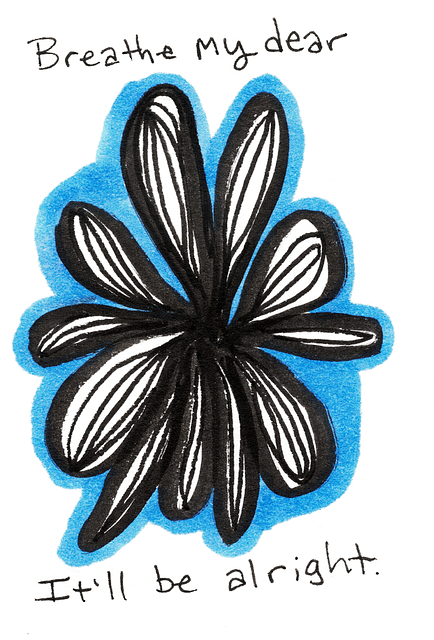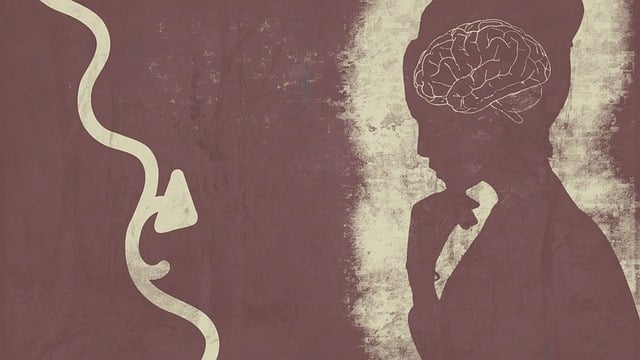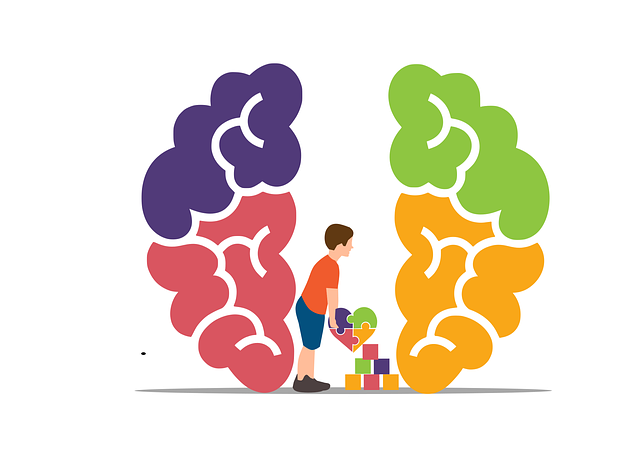Social skills training, particularly using Eye Movement Desensitization and Reprocessing (EMDR) therapy, is crucial for young children with mental health challenges. EMDR, combined with self-awareness exercises and cultural competency, helps kids process traumatic memories, build confidence, and improve social interactions. A personalized approach that involves parents in at-home practice enhances these benefits, leading to improved emotional regulation and stronger therapeutic bonds. This integrated strategy results in better outcomes for young clients navigating their mental health journeys.
Social skills training is a powerful tool in supporting individuals with mental health conditions, particularly young children. This comprehensive guide explores effective strategies for enhancing social interactions, focusing on therapy techniques like Eye Movement Desensitization and Reprocessing (EMDR). We delve into creating supportive environments, teaching empathy, communication, and problem-solving, while emphasizing the vital role of parental involvement. By integrating these practices, therapists can foster significant improvements in mental health outcomes for children through EMDR therapy.
- Understanding Social Skills and Their Impact on Mental Health
- The Role of EMDR in Treating Children with Social Anxiety
- Creating a Safe Space: Building Trust and Connection
- Teaching Pro-social Behaviors: Empathy, Communication, and Problem-Solving
- Parent Involvement and Home Practice for Long-Lasting Results
Understanding Social Skills and Their Impact on Mental Health

Social skills are essential for navigating relationships and interacting with others, significantly influencing mental health and overall well-being. They encompass a range of abilities, from communication and empathy to conflict resolution and emotional regulation. For individuals with mental health conditions, understanding and developing these skills can be transformative. Many mental health challenges can isolate people, leading to feelings of depression, anxiety, or social phobia, hindering their ability to engage in meaningful social interactions.
Training in social skills, especially for young children undergoing therapy like EMDR (Eye Movement Desensitization and Reprocessing), can be a powerful tool. It helps them learn appropriate ways to express emotions, interpret social cues, and build confidence in social settings. This not only aids in depression prevention but also enhances their ability to manage risks and navigate the complexities of interpersonal relationships. Boosting confidence through social skills training empowers individuals to seek support, form connections, and lead more fulfilling lives.
The Role of EMDR in Treating Children with Social Anxiety

EMDR (Eye Movement Desensitization and Reprocessing) has emerged as a powerful therapy for young children experiencing social anxiety disorders. This innovative approach focuses on helping kids confront and overcome traumatic memories or stressful events that may be contributing to their social anxiety. By encouraging bilateral stimulation, similar to what occurs during rapid eye movement sleep, EMDR facilitates the brain’s natural healing process. Through this method, children can learn to reprocess distressing memories and associated beliefs, leading to improved social interactions and reduced anxiety in various settings.
Incorporating EMDR into social skills training can be a game-changer for young patients. It not only addresses the root causes of their anxiety but also enhances their ability to engage in therapeutic activities. Moreover, healthcare providers can play a crucial role in burnout prevention by incorporating self-awareness exercises and self-care practices alongside EMDR techniques. These strategies ensure that both the child and the therapist remain emotionally balanced, fostering a supportive environment for effective treatment.
Creating a Safe Space: Building Trust and Connection

Creating a safe space is paramount in social skills training for children with mental health conditions. This involves establishing an environment where young individuals feel empowered to express themselves freely, without fear of judgment or repercussions. Through techniques like Eye Movement Desensitization and Reprocessing (EMDR), therapists can help children process traumatic memories while fostering trust and connection. The therapy room becomes a sanctuary where resilience is built and emotional growth is encouraged.
Moreover, healthcare provider cultural competency training plays a crucial role in creating these safe spaces. Understanding and respecting the child’s background, family dynamics, and cultural beliefs helps tailor therapeutic interventions. This approach not only enhances the effectiveness of EMDR and other stress reduction methods but also strengthens the bond between therapist and client, facilitating better outcomes for young children navigating their mental health journeys.
Teaching Pro-social Behaviors: Empathy, Communication, and Problem-Solving

Teaching pro-social behaviors is a crucial component of social skills training for mental health conditions, especially in therapy for young children. This involves fostering empathy, enhancing communication, and equipping individuals with effective problem-solving strategies. Through techniques like EMDR (Eye Movement Desensitization and Reprocessing), therapists can help clients understand and share the feelings of others, thereby cultivating a deeper sense of empathy.
Effective communication is another key focus area. Teaching children to express their emotions and needs appropriately, listen actively, and engage in constructive conversations can significantly improve social interactions. Additionally, problem-solving skills training enables individuals to tackle challenges head-on. By integrating these pro-social behaviors, therapy sessions not only support emotional regulation but also promote self-care practices and burnout prevention, ultimately enhancing overall mental health.
Parent Involvement and Home Practice for Long-Lasting Results

Involving parents and caregivers in social skills training can significantly enhance therapy outcomes for young children with mental health conditions, such as those undergoing EMDR (Eye Movement Desensitization and Reprocessing) treatment. At-home practice is a crucial component of this process, enabling families to reinforce positive behaviors and coping strategies consistently. Parents play a pivotal role in modeling healthy social interactions and managing stress, which are essential aspects of mental health awareness. By integrating therapy techniques into daily routines, parents can support their children’s self-esteem improvement and help them generalize newly learned skills across different environments.
Regular communication between therapists and parents is vital to ensure the effectiveness of home practice. Therapists can provide tailored guidance, offer strategies for stress management, and share progress updates, fostering a collaborative environment. This partnership not only strengthens the therapeutic bond but also ensures that social skills training complements and reinforces professional support, leading to long-lasting positive changes in children’s lives.
Social skills training, enhanced by evidence-based therapies like EMDR, plays a pivotal role in improving mental health outcomes for young children. By creating safe spaces, fostering trust and connection, teaching pro-social behaviors, and involving parents in home practice, we can empower kids to navigate social interactions with confidence and empathy. This holistic approach ensures that the benefits of therapy extend beyond the therapy room, promoting lasting positive changes in their lives. Incorporating EMDR into social skills training is a game-changer, offering a promising path towards alleviating social anxiety and enhancing overall well-being for our youngest individuals.










